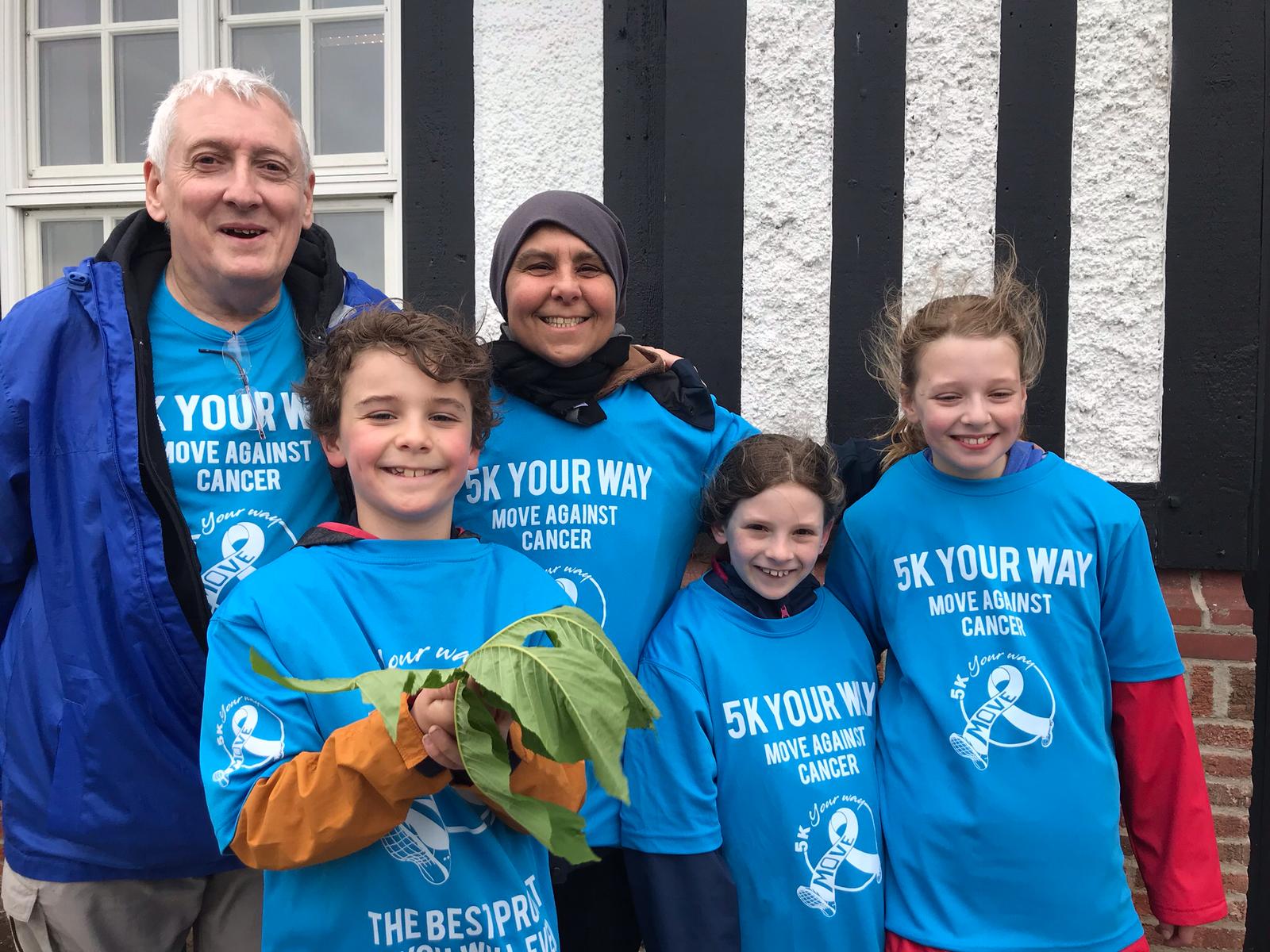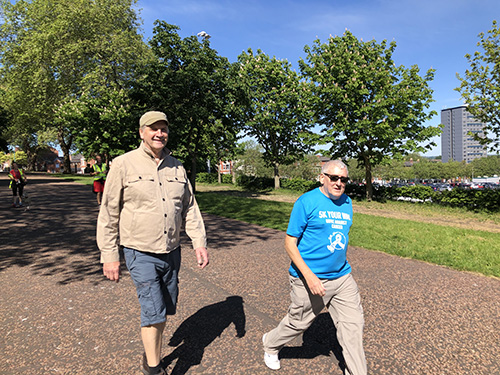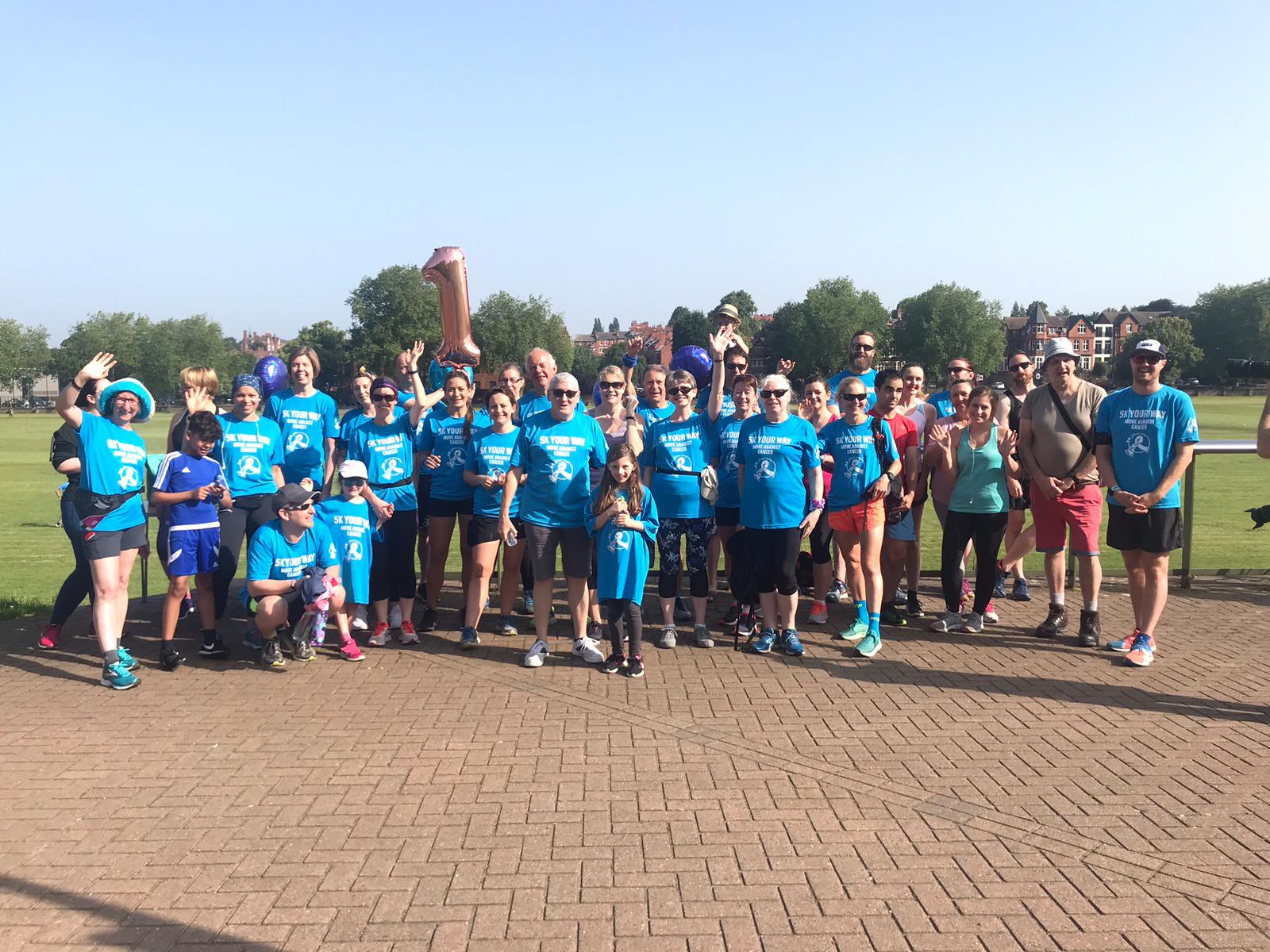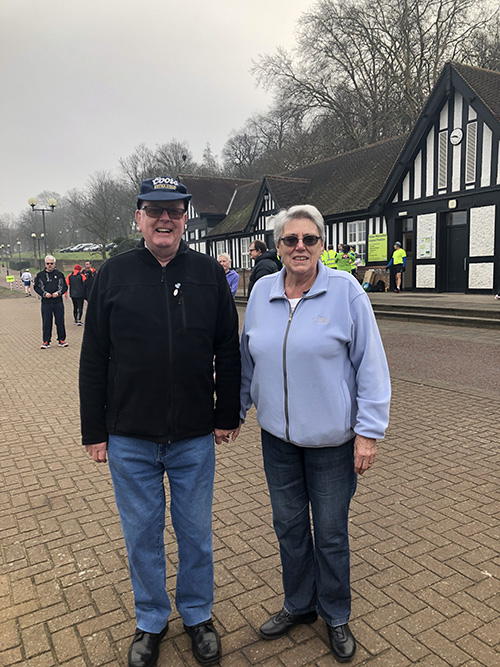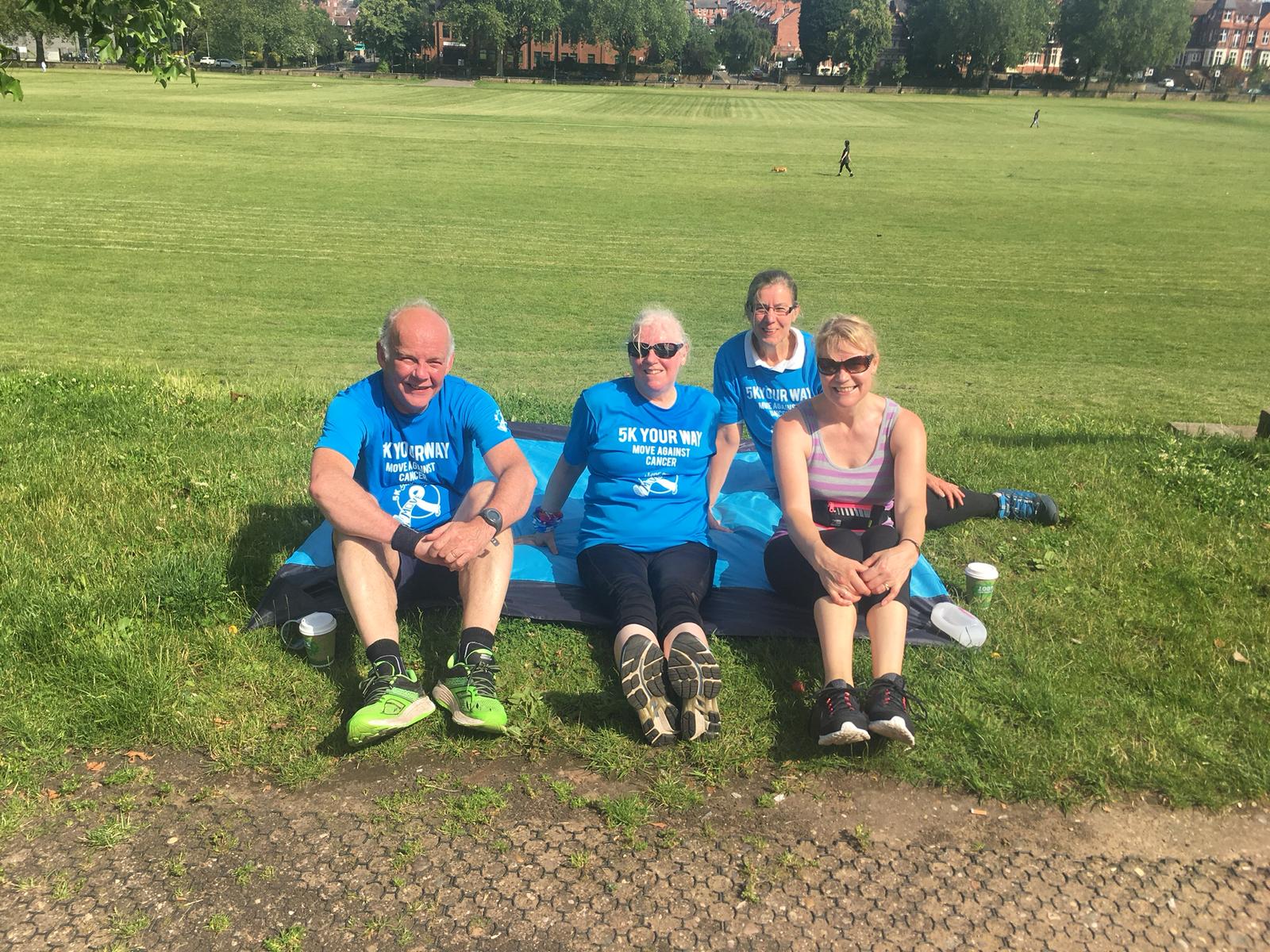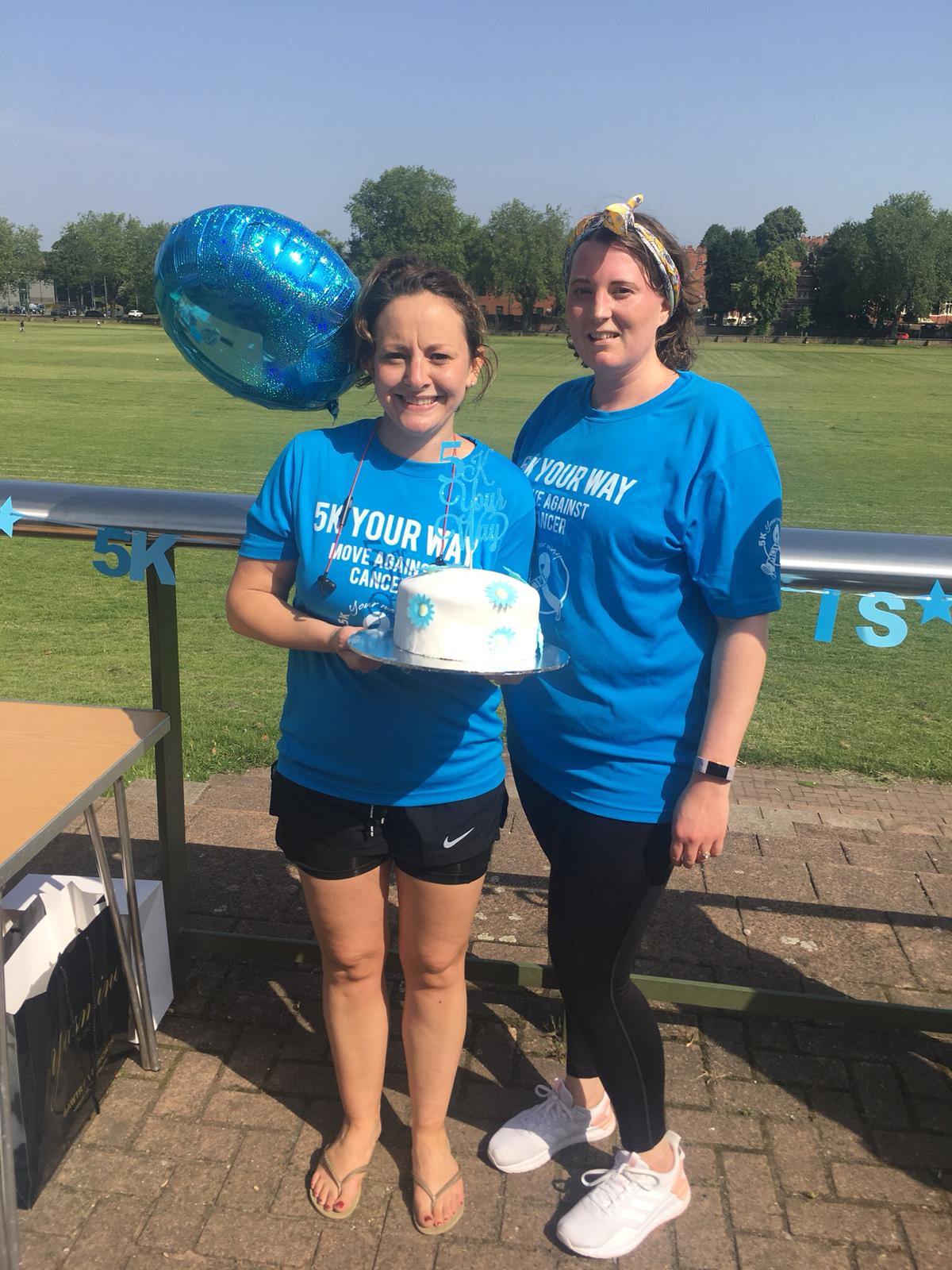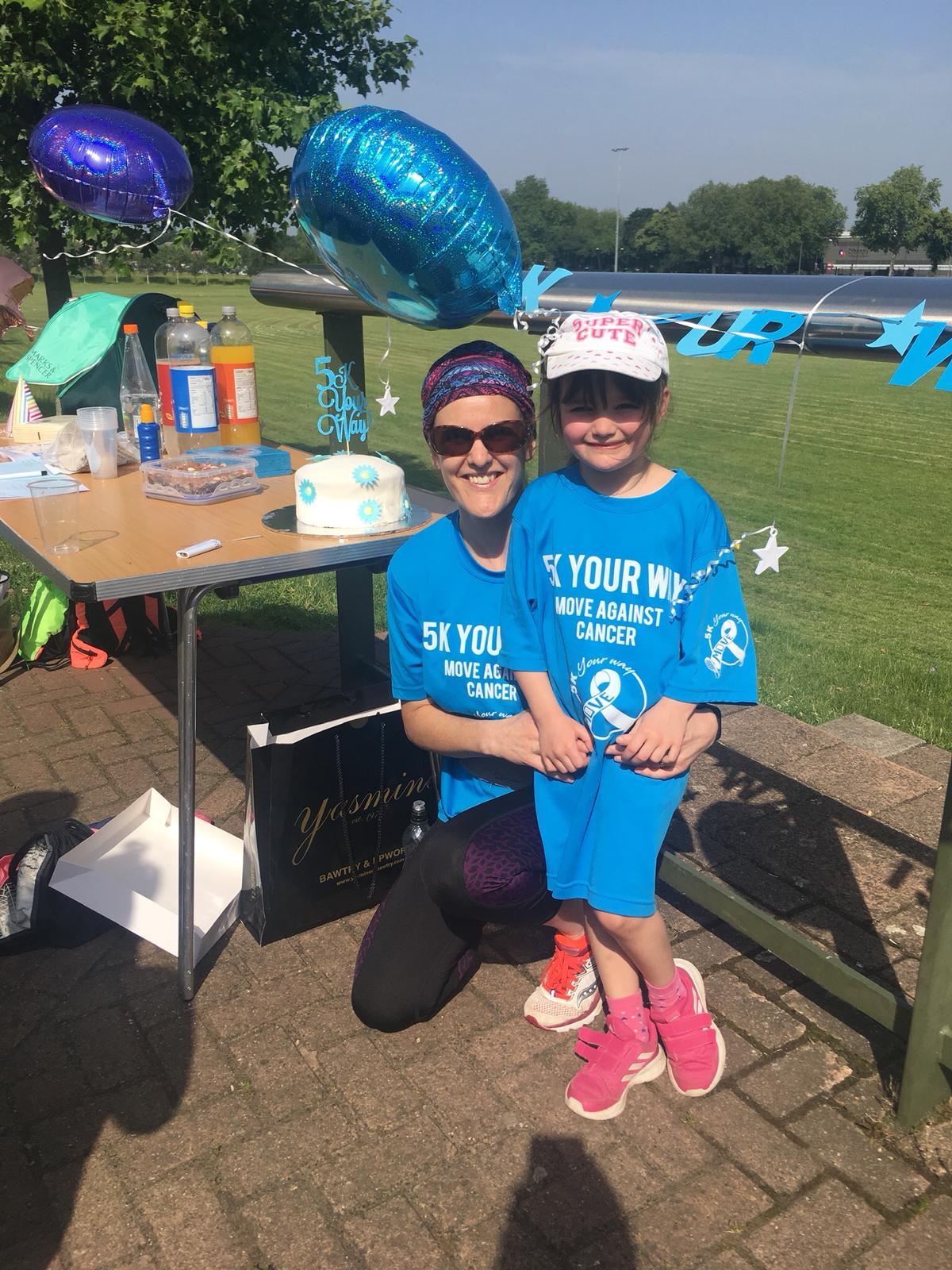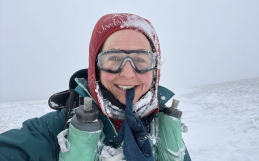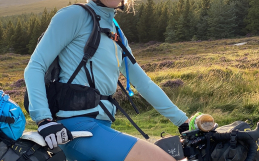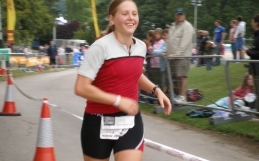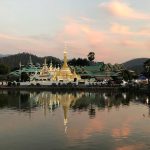Why I cofounded 5K Your Way, Move Against Cancer (www.5kyourway.org)
Exercise is arguably the most under-used ‘wonder drug’ in the NHS. For those living with and beyond cancer, there is persuasive and accumulating evidence that exercise and physical activity during and after cancer has a multitude of benefits; improved physical and psychological well-being; reduced treatment side effects; decreased cancer-related tiredness; enhanced self esteem; even prolonged survival. As oncologists we prescribe drugs and we prescribe radiotherapy. Many of these treatments can cause significant and potentially severe side effects, some of which can last long after treatment has finished. And living with cancer can be an isolating experience; friends and families often don’t know how to help or what to say. And if and when cancer treatment is finished, too often the NHS simply sends patients on their way, leaving patients to find their own way to pick up the life they may have temporarily given up at diagnosis.
Yet, despite the growing evidence for its benefits, most of us don’t discuss exercise with our patients. This may be because exercise is not something we’re taught about in medical school and as junior doctors. It may be because, commonly, health care professionals often don’t look after ourselves; if we don’t exercise how can we tell our patients to? It may be because we are so stretched working in the NHS, that we don’t even get time to do the ‘essentials’ properly in each clinic appointment; finding the time for ‘extras’ means patients waiting anxiously to see us will spend even longer in the waiting room. And it may be because we don’t know how to bring up the concept of exercise to our patients. Having avenues to signpost patients towards makes starting the conversation around exercise much easier.
I was fascinated to learn that, in order to get one smoking patient to give up cigarettes, a doctor needs to advise between 50-120. However to get one patient to meet recommended physical activity levels a doctor needs to advise just 12. Talking about exercise with our patients is good bang for your buck, whichever way you look at it. Many people with cancer are willing to try anything that might improve their survival and quality of life. If you google ‘cancer survivors alternative treatment’ you come up with an infinite number of ‘therapies’ with limited or zero evidence for efficacy. Exercise is rarely mentioned. If patients don’t know exercise is likely to help why are they going to try it? As health care professionals I believe we owe it to our patients to make the most of the ‘teachable moments’ that come with each clinic appointment and take the time to educate them to the power of exercise alongside and after cancer treatment. Then patients are able to make their own, informed decision as to whether or not they want to work on increasing their activity levels. Like anything in life, if you understand why you are doing it you are far more likely to persevere.
The idea for 5K Your Way, Move Against Cancer came when I was working with some teenage and young adult patients around 18 months ago. Many of these patients receive long, tough courses of chemotherapy. During treatment they do little other than sit in their hospital room. After treatment we offer little to help them regain their fitness. I wanted to set up something that would help change this, but knew that the best way to instigate change would be by including health care professionals in the change. What better way to do this by creating a community within the wonderful community that is parkrun. So, alongside Gemma Hillier-Moses (cancer survivor and CEO of Move charity) we created 5K Your Way, Move Against Cancer. A community based initiative to encourage those living with and beyond cancer, families, friends and those working in cancer services to walk, jog, run, cheer or volunteer at a local 5K Your Way parkrun event on the last Saturday of every month. We are a support group with a difference, a run and walking club with a difference, a social opportunity with a difference, a coffee morning with a difference. And we are spreading rapidly across the UK and Ireland with twenty-four 5K Your Way groups walking, jogging, running or cheering at parkrun events on 30th March 2019.
We hope that 5K Your Way, Move Against Cancer offers an avenue for health care professionals to signpost anyone affected by cancer towards activity in a safe, welcoming, supportive and empowering environment. And equally, we hope the initiative will encourage health care professionals to increase their own activity levels alongside their patients. In Nottingham we are getting more and more walkers. Some start by walking one lap and build up to two. These are the big winners; getting inactive people to become active has greater health benefits than getting active people to do more activity. We have a support network that is getting closer and stronger each month. A group of 5K Your Way regulars are now ‘parkrun tourists’, often fuelled by gin and tonics the night before. They run, drink coffee, eat cake and talk but know they will always have each other’s backs whatever happens with their cancers. And we have an oncology department that is becoming more active. Exercise is a bug and it’s catching on. The prof of oncology has turned himself into a runner. The clinical trials nurses want to do a 5K Your Way volunteer takeover. A cancer nurse runs the 5K herself and then goes back to walk with one of her patients. A junior doctor who has never previously run is now a regular parkrunner.
I love working as an oncologist. It’s rewarding and life-affirming on so many levels. But sometimes it’s the little things that make the biggest difference: kind words; a cup of tea; an extra phone call; advice about the best wig shop. And sensitively cautioning relatives against wrapping their loved ones in cotton wool, giving patients permission to be active and being aware of local support networks that might help. Social prescribing is additive and perhaps even synergistic with drug prescribing. One man in his seventies told me “I feel alive” when he finished a 5K Your Way event during his chemotherapy. That’s enough for me to know 5K Your Way is making a difference.
